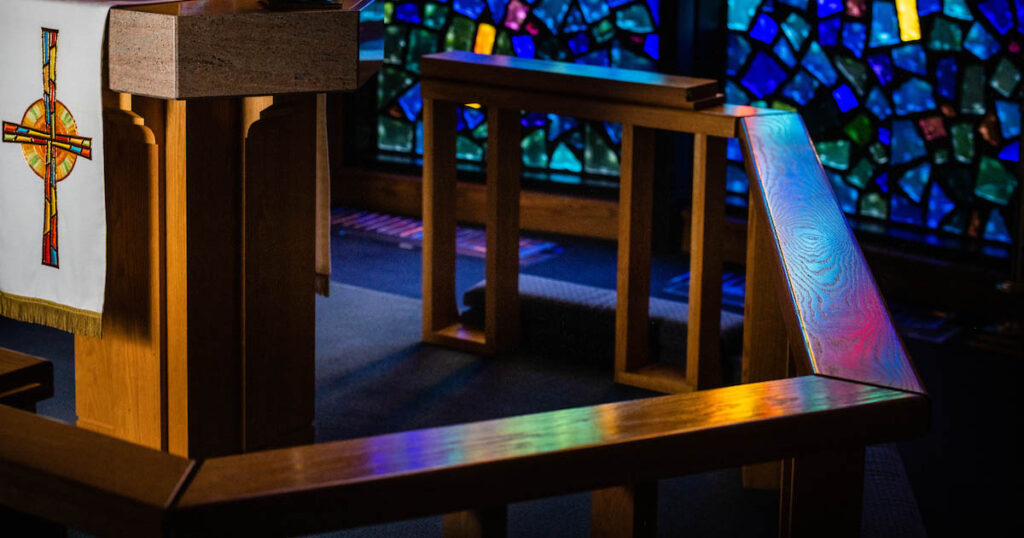All of this might be only mildly interesting except that I never saw a pastor commune himself until I went to college. In the intervening time between 1523 and the 1950s and1960s, the Lutheran pastor no longer communed in his own congregation. During the time I grew up, the pastor communed at the winkel or circuit gathering. There was the appropriate forum for the pastor to commune and it was out of eyesight of the people he served. I do not know how this happened or what the intention was but it severed the pastor from the assembly in ways that were not helpful then and are somewhat scandalous now.
By the time I made it to seminary a new invention had come to my home parish and to the Lutheranism in which I grew up. That was the invention of having an elder commune the pastor. I was quite shocked by the pastor communing himself at the campus Eucharists at St. John's in Winfield, KS, but it was even more shocking when the elder (usually a family member in my small interrelated congregation) stepped up to the altar and gave the pastor the body and blood of our Lord. My father explained it that the pastor had requested it and since we went through a pastoral change while I was at the end of my high school days and the beginning of my time in college, I knew this was probably true. What stuck out to me was how odd it was that my relative in a suit stepped in to take the place of a pastor serving my vested pastor who had presided in the Divine Service to that point and would then take over and finish the service. While the pastor never communing with the congregation was odd, this was no less and might be even more strange and incomprehensible (except out of some pious humility).
Now we have seen the pastor's self communion restored more or less -- more in the liberal parts of Lutheranism and less in the smaller conservative ones. Officially, however, the self-communion has been restored to the rubrics of the major Lutheran bodies (enshrined both in Evangelical Lutheran Worship and Lutheran Service Book. It is clear that some pastors are uncomfortable about it still. The elders are still communing some pastors. Assisting pastors are communing the presiding pastors. Pastors are still communing at winkels. A new wrinkle is that pastors are communing at the end rather than at the beginning of the distribution. That is one I do not like though I understand. If the reliquae are being consumed, then the pastor can consume them at the end while communing. But the consumption is different than the communion -- something I do not think many pastors appreciate. When you consume the reliquae you are not communing for a second, third, or fiftieth time in fifteen minutes but consuming the reliquae. Do you say "the Body of Christ" or "the Blood of Christ" after every host and sip?
So when does this end? There are many factors that shape liturgical practice and many of them -- dare I say most -- have little to do with theology but a great deal to do with piety. When piety changes, practice changes and when practice changes doctrine changes and when doctrine changes, we have trouble in River City, my friends. Unfortunately, that is the back door that too many things use to enter into the life of the Church. Some of them are simply goofy or odd and not particularly nefarious (as perhaps the pastor's self-communion) but many of them are more than foolish and benign. That is why we need to watch ourselves and our practices lest they become the doors through which we end up changing what we believe. For what its worth, I have for more than 42 years communed myself and the only people who have had an issue with that practice, oddly enough, have been other pastors. Go figure. I guess it is a small thing in a world in which communing at home in front of a screen while the pastor says the right words from a video or livestream has hold of our imagination and become almost acceptable even among Lutherans...

No comments:
Post a Comment